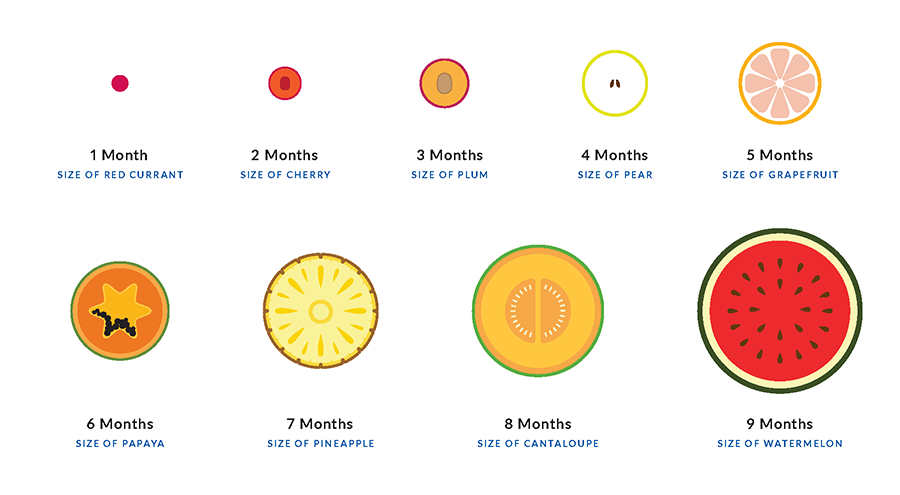Prenatal Care

At the OHSU Center for Women’s Health, our expert prenatal teams can help you have a healthy pregnancy and a healthy baby. We will support you through birth and beyond with the most advanced care in Oregon and southwest Washington. You’ll also find specialized care for high-risk pregnancies.
We offer:
- Team-based care from top experts to create the best possible care plan for you and your baby.
- The latest imaging technology, including 3D and 4D (with motion) ultrasound.
- The region’s best specialty pregnancy care for women with heart conditions, diabetes or placenta-related conditions.
- Guidance from dietitians, genetic counselors and mental health experts.
Learn more
What is prenatal care?
Prenatal care helps you prepare to have a baby in the safest and healthiest way possible.
Your care team will closely track your health and your baby’s growth to make sure your pregnancy is progressing normally. At each visit, we will listen to your baby’s heartbeat and track your weight and blood pressure. We’ll also check you for conditions such as gestational diabetes or sexually transmitted diseases (STDs).
Appointment schedule
Call us as soon as you find out you are pregnant to make your first appointment. We will schedule you with the care team you choose. If you haven’t decided yet, you can still see us right away in our early pregnancy clinic. Once you choose a care team, you typically will see us:
- Every four to six weeks from 10 to 28 weeks of pregnancy.
- Every two to four weeks from 28-36 weeks.
- Every one to two weeks from 36 weeks until birth.
- About two and six weeks after delivery.
Some of these pregnancy care visits may be virtual visits. You may need to come in more often to see specialists or for other services. We will coordinate your appointments on the same day whenever possible.
You can call us any time if you have any concerns, questions or symptoms such as bleeding, pain or cramping.
Why is prenatal care important?
During pregnancy, your well-being can affect your baby’s health — before birth and throughout life. Prenatal care is important to make sure that you and your baby are healthy. Your care team aims to find any problems early and improve your chances of safely delivering a healthy baby. It can also be reassuring to know that you and your baby are fine.
How big is my baby?

Choosing your provider
Choosing a provider is one of the first decisions you’ll make in pregnancy. Our doctors, certified nurse-midwives and specialists work together to give you and your baby the best possible care.
When you come in for your early pregnancy appointment, your care provider can answer your questions and help you choose a provider who is right for you.
Obstetrician-gynecologists (OB-GYNs)
Our OB-GYNs are experienced doctors who:
- Provide complete care for both low- and high-risk pregnancies.
- Work closely with nurse-midwives, who help with prenatal care, lactation support and other care before and after delivery.
- Support parents who have experienced birth-related trauma with personalized care in our perinatal trauma clinic.
As a patient seeing an OB-GYN, your primary maternity provider is a doctor who will see you for most of your prenatal care visits. You may also see one of our team’s midwives or advanced practitioners for some visits.
If your pregnancy becomes high risk, we may refer you to a perinatologist or seek their advice.
At the hospital for delivery, our team of doctors, including residents, will care for you. If you need a cesarean section, our team can continue caring for you.
Certified nurse-midwives
Our nurse-midwives are licensed and certified health professionals who offer:
- Compassionate care with the safety net of Oregon’s top hospital.
- A group prenatal care option with other women who have a nearby due date.
- Access to waterbirth. You can choose to deliver your baby in a warm bath if you have a nurse-midwife as your prenatal care provider.
As a midwifery patient, you can see any member of our midwifery team during your prenatal visits. We recommend that you establish care with one or two midwives for the majority of your prenatal care. We have found that patients appreciate having consistent care providers throughout pregnancy.
Learn more:
Maternal-fetal medicine specialists (perinatologists)
Our specialists in maternal-fetal medicine provide:
- Complete care and consultation for women with high-risk pregnancies.
- Advanced screening, diagnosis and treatment of birth defects and genetic health conditions.
- Close collaboration with other OHSU specialists, including heart and diabetes care specialists.
- Expertise in imaging, including ultrasound and fetal MRI (magnetic resonance imaging).
Family medicine doctors
A family medicine doctor, available at OHSU, can care for you before, during and after pregnancy. This provider can be your baby’s doctor, too.
Support services
We provide an array of support services and education, including:
Childbirth and early parenting classes
We offer classes for expecting parents, families and caregivers to help you prepare for childbirth and early baby care.
Genetic counseling and testing
We offer an array of genetic tests to determine your baby’s risk for chromosomal abnormalities and birth defects, such as Down syndrome or spina bifida. Our team of certified genetic counselors can help you understand your risks and choose the right tests for you.
Ultrasound
We use state-of-the-art imaging technology to monitor your baby’s health and development. This includes high-resolution 3D and 4D (with motion) ultrasounds when they are medically needed. Regular ultrasound scans throughout your pregnancy help us catch and treat any problems early. A doctor with imaging expertise will meet with you to explain results.
Mental health during pregnancy
Anxiety and depression are common during and after pregnancy. If you experience mental health issues, our team of experts can help you feel better with the safest and most effective treatments.
Nutrition during pregnancy
We offer you nutrition advice and counseling from a registered dietitian. This can help you feel your best during pregnancy and support your baby’s health and development. We can help you create an eating plan for the unique needs of you and your growing baby or babies.
Acupuncture during pregnancy
A skilled acupuncturist can provide treatment along with your regular care for common pregnancy conditions. Acupuncture during pregnancy can:
- Relieve pain
- Help you relax
- Stimulate labor
- Help the baby turn into a head-down position for delivery
Physical therapy
Physical therapy improves your strength, flexibility and stability during pregnancy. It can relieve pregnancy-related pain and discomfort. It is very effective for treating pelvic floor pain or weakness after delivery.
Helpful tips during pregnancy
Keep up your exercise routine, even if you have to take it a little slower. You may become out of breath more quickly.
If you don’t exercise regularly, it’s a great time to start. We recommend moderate exercise for 30 minutes most days of the week. Some great options are: a brisk walk, hiking, stationary bike, elliptical, prenatal yoga, swimming.
Avoid these kinds of exercise:
- Extreme exertion at high altitude
- Contact sports (ice hockey, soccer, basketball)
- Potential for falls (horseback riding, downhill skiing, road biking)
- Scuba diving
Learn more:
- Exercise During Pregnancy, American College of OB-GYNs
- Exercise in Pregnancy, American College of Nurse-Midwives
Some medications — including vitamin supplements, over-the-counter medications and herbal remedies — can be harmful to a developing baby. Talk to your provider before taking anything.
Do not stop taking prescription medication, however, until you have talked with your health care provider. Although some medications may increase the risk of birth defects, the benefits of taking the medication may outweigh the risks to your baby.
Use acetaminophen (Tylenol) to relieve minor problems, such as a mild headache or backache or a mild fever with cold symptoms. Do not use nonsteroidal anti-inflammatory drugs (NSAIDs), such as ibuprofen (Advil, Motrin) or naproxen (Aleve), unless your provider says it is OK.
Learn more: Taking Medicine During Pregnancy, American College of Nurse-Midwives
For the health and safety of you and your baby, we recommend that you avoid smoking, drinking and drug use during pregnancy. There is no known safe amount of alcohol or marijuana during pregnancy. If you smoke, drink or use drugs, we can connect you with resources to help you quit.
Learn more:
- Mother to Baby, 866-626-5847, for information on exposures to avoid during pregnancy, including household items, chemicals, pets, infections and more
- Marijuana and Pregnancy, American College of OB-GYNs
- Opioid Use Disorder and Pregnancy, American College of OB-GYNs
Unfortunately, miscarriages are common. About 20% of pregnancies end in miscarriage. However, another 20% of healthy pregnancies have bleeding in early pregnancy.
Not all uterine cramping or vaginal bleeding leads to miscarriage. The occasional cramp in your uterus is probably not an indication of a miscarriage. However, if you experience continuous cramping or have any bleeding, please let your provider know.
Current patients
- Call 503-418-4500 during business hours to:
- Speak to a nurse
- Make an appointment
- Address urgent needs
- After business hours, send nonurgent messages through MyChart.
- For emergencies when we are closed, call 503-494-8311 to speak to the OB-GYN or nurse-midwife on call. Call if you:
- Can’t keep down fluids for 8 hours or longer
- Have vaginal bleeding, severe cramps or pain
- Have a fever over 100.4F (or 38C)
Location
Parking is free for patients and their visitors.
Center for Women’s Health
808 S.W. Campus Drive
Portland, OR 97239
Map and directions
Prenatal care after birth trauma
Learn about one patient’s experience in our supportive perinatal trauma clinic.
Baby Steps
A weekly guide to pregnancy and your child’s early development.
Research and clinical trials
At OHSU, many providers are also researchers who strive to turn discoveries into better patient care. You may be eligible to join a pregnancy study.